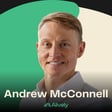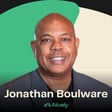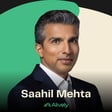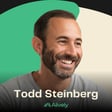
Fuel Your Body Like World Champion Triathlete Greg Bennett - E3
Everyone has experienced setbacks or disappointments in their pursuit of success, and it can be tricky to keep a positive mindset and healthy lifestyle amidst the demands of day-to-day life. It’s easy to feel like you've lost control over your well-being and unsure of how to reclaim the discipline and focus that once propelled. In this episode, we explore the journey of a former Olympic athlete who faced crushing setbacks, only to discover the power of small, consistent habits in transforming his mindset and performance, both in sports and in life. By applying the principles of high-performance training to everyday routines, you too can regain control over your health, productivity, and overall sense of fulfillment, even in the face of life's toughest challenges.
Greg Bennett, a former Olympic triathlete and world champion, has transitioned from his illustrious athletic career to become a highly sought-after speaker, corporate trainer, and entrepreneur. With numerous international titles and multiple Olympic appearances under his belt, Bennett's journey is a testament to the power of discipline, dedication, and strategic thinking. His client list boasts an impressive array of top-tier organizations, including Fortune 500 companies, professional sports teams, and elite educational institutions, all of whom seek his expertise in applying high-performance principles to everyday life. As a thought leader in the realm of health, mindset, and peak performance, Bennett's insights continue to inspire and empower individuals and teams to unlock their full potential, both on and off the field.
“I never won a running race in school or did any of that, but I loved and I was passionate about trying to be better and do better.” - Greg Bennett
In this episode you will learn:
- The lessons Greg learned from his Olympic disappointment and how taking control of sleep, recovery, and mindset led to later success.
- How the high-performance principles Greg applied as an athlete can be incorporated into everyday life, especially for busy parents.
- The importance Greg places on sleep, presence, and enjoyment in balancing health and performance with family responsibilities.
- Greg's transition from a zero-sum competitive mindset to one of abundance, and how he applies this to parenting and work.
- The fitness approaches and routines Greg follows in his post-professional athlete life, including weightlifting and mobility work.
- Greg's emphasis on cultivating social connections, managing time intentionally, and maintaining an element of play and fun in his work.
Resources
- Connect with Greg on Instagram: https://www.instagram.com/thegregbennettshow/
- Visit the Bennett Endurance website: https://www.bennettendurance.com/
- Listen to Greg's podcast "The Greg Bennett Show": https://www.bennettendurance.com/podcast
- Shop all the products Greg mentions in the episode: https://alively.com/products/gregbennett
This podcast was produced by the team at Zapods Podcast Agency:
https://www.zapods.com
Find the products, practices, and routines discussed on the Alively website:
https://alively.com/


















